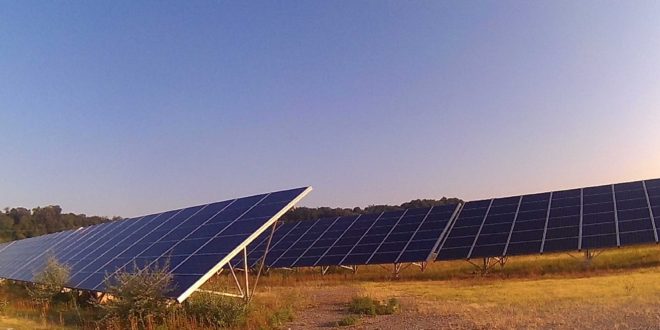10 of the Hottest Green Technology Trends
Humanity has made some major shifts toward sustainability in recent years. While there’s still a long way to go before every business, organisation, and person on the planet exists in an environmentally harmonious way, there have nevertheless been some big developments in eco conscious living, particularly on the technology front.
Here are ten of the most recent green technology trends, which are only set to go further in the months and years to come.
1. Transport is going electric

Elon Musk may be one of the most polarizing figures on earth, but that doesn’t negate the big role he’s played in making electric vehicles sexy and appealing to the super wealthy. Electric vehicles are also now within the reach of everyday folk thanks to the Nissan Leaf and Chevy Volt, electric and hybrid public transport is becoming much more commonplace in major international cities, and we’re starting to see more and more high-speed rail networks build out.
2. Circular Economies are emerging
Recently, there has been a significant investment in the development of platforms, apps, and other technologies that support and promote circular economies. This model was first proposed in the 1960s, but is beginning to become a reality as more and more people grow enthusiastic about sharing resources in order to eliminate waste.
3. Agriculture is playing a role in sustainability
In 2020, farmers are being given the opportunity to make reparations for the damage that excessive agriculture has done to the planet through Agrivoltaics. The process involves using agricultural land for energy production at the same time as crop growing through the installation of solar panels. A recent study from the University of Arizona has concluded that certain crops are actually healthier under solar panels, and the very first Agrivoltaics conference is due to take place later this year in France.
4. Smart electronics are reducing energy
Home technology has now advanced to the point where appliances and devices are able to regulate themselves. Smart electronics, like power strips, can actually turn off home appliances when they aren’t in use, and even help people automatically control things like turning off the lights when leaving the room.
5. Gaming is bringing entertainment into the home
Innovation in gaming technology is also playing a role in sustainability. These days, gaming enthusiasts can reduce their carbon footprint by playing online. iGaming tech means that taking trips to Vegas are no longer the only way to participate in poker tournaments, instead, they can be played virtually right from a player’s computer or on their Android devices. Meanwhile, online and mobile RPGs, MMORPGs, and Battle Royale games are connecting gamers from all over the world in pro tournaments, proving that travel isn’t always necessary when it comes to finding good opponents.
6. A.I will take Microgrids to the next level
Microgrids aren’t necessarily a new concept, however from 2020 onwards Artificial Intelligence is expected to play a huge role in taking them to the next level. Microgrids are necessary to ensure that clean and solar energy supplies to homes and industries are safe and autonomous, and the implementation of AI will speed up the process and save on financial resources.
7. Home energy management gets simplified
As with everything, changing the way we use the earth’s resources begins at home, and home energy-management technology will simplify sustainable living for a lot of people. The technology monitors the energy usage in a home, outlet by outlet or device by device, and sends regular reports to the user’s computer, even recommending the things that need to be changed in order to reduce energy consumption.
8. Water Management gets smarter
More and more efforts to conserve water are being made, and new technologies are emerging that will improve the supply of quality fresh water around the globe, and possibly even reuse and recycle water that’s used on a daily basis. Greywater is wastewater from homes, coming from showers/baths, dishwashers, sinks, washing machines etc. It’s somewhere in the mile between potable and heavily contaminated water, but the focus is beginning to switch towards developing technology that would treat it for reuse at the point of use in the home, rather than in energy-draining water treatment plants.
9. ICT is changing lifestyles and businesses
Information and Communications Technology has had a dramatic impact on our daily lives, and it too is playing a big role in reducing greenhouse emissions, gasoline consumption, energy consumption and pollution. There are now approximately 16.5 million people in the US who are “telecommuters’ – working from home or remote locations with a WiFi connection, telephone, and computer. Furthermore, at least 33 million US residents could switch to telecommuting too, which would effectively save up to 67 million metrics annually on greenhouse gas emissions.
10. Clean Energy is spreading like never before
Experts have predicted that between 2016 and 2020, a total of 70,000 solar panels will be installed every hour around the globe. And as green electricity is controlled by sophisticated smart microgrids, it will easily reach coastal and distant continental areas, ensuring that more and more human occupied areas will exist on clean energy.


